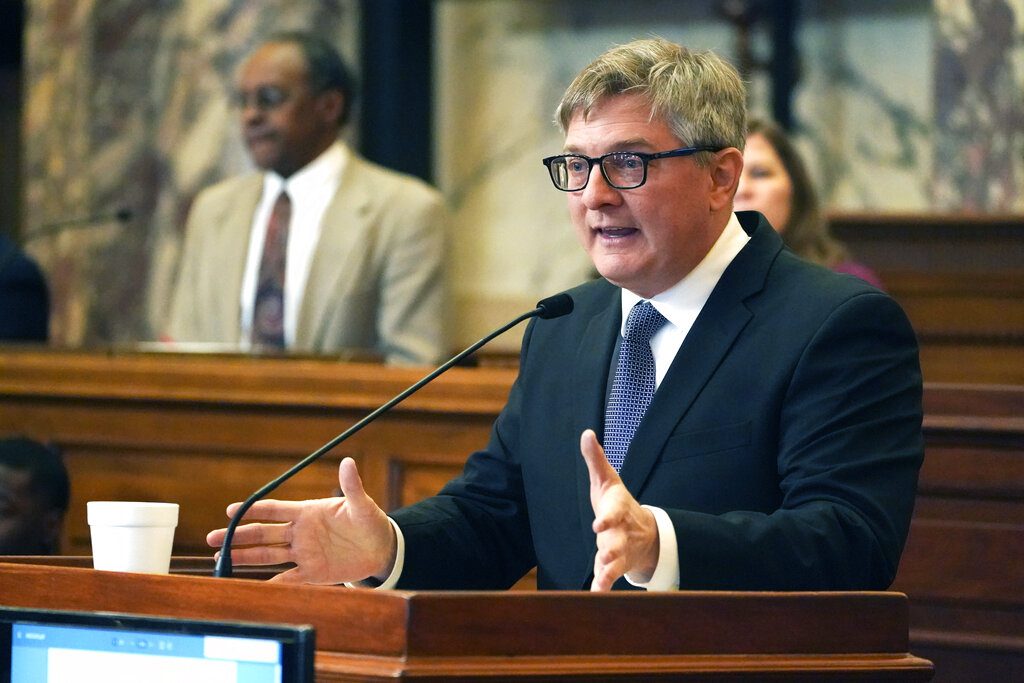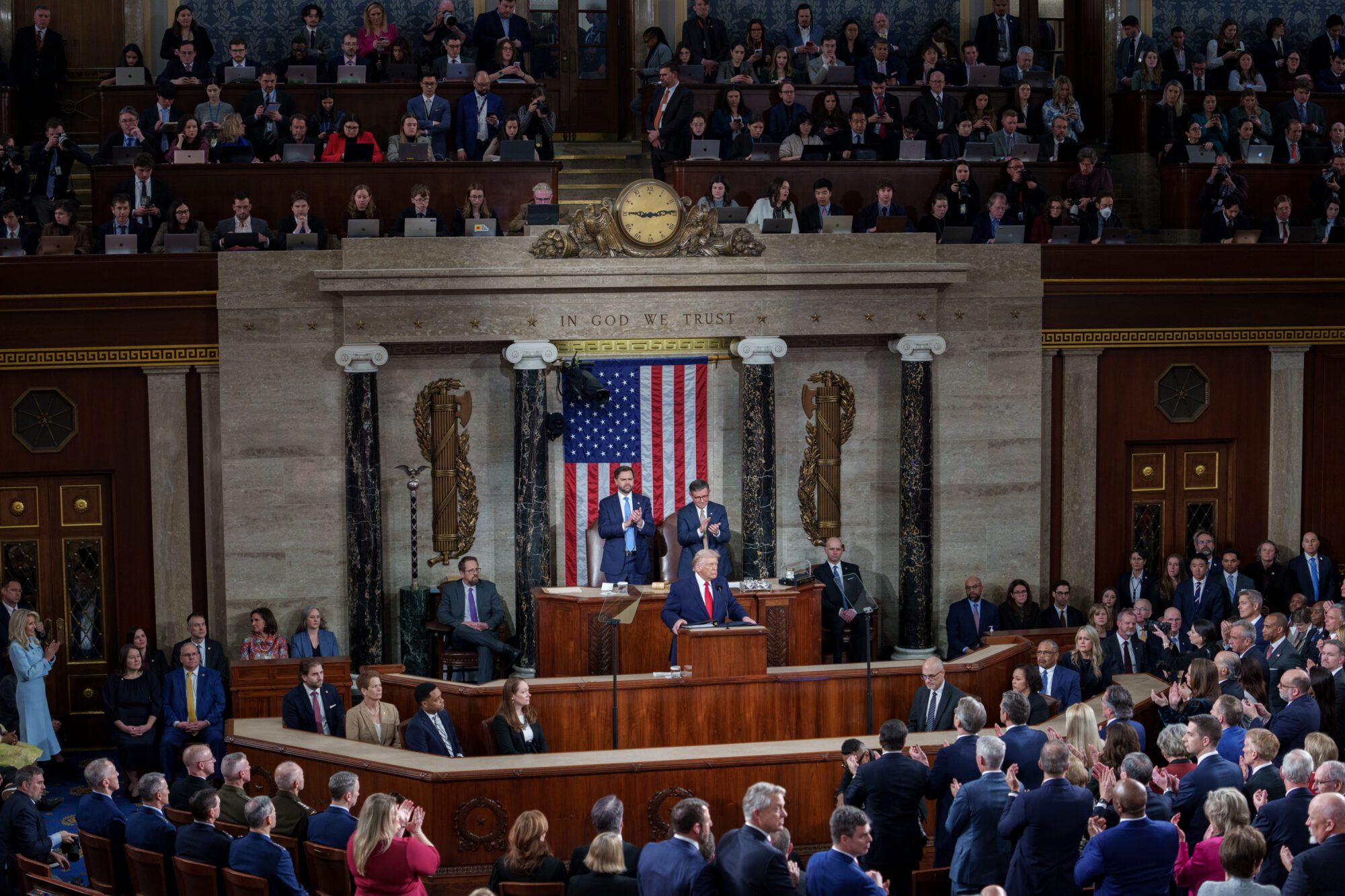Democrats: GOP distorts the ‘truth’
Gov. Haley Barbour and other Republicans are campaigning for office with platforms based on deception and half-truths – and the Mississippi Democratic Party is setting the record straight.
Republicans have tried to spread blatantly false information hoping to convince Mississippians that, among other things, Barbour is responsible for a large increase in education spending and lawmakers shouldn’t reduce the sales tax on groceries.
“The truth, however, paints an entirely different picture,” said Wayne Dowdy, chairman of the Mississippi Democratic Party.
“Gov. Barbour isn’t responsible for the increase in education spending. After all, this is a governor who spent his first three years in office opposed to and lobbying against full funding the Mississippi Adequate Education Program.
“And every Mississippian knows that the state should immediately reduce the ridiculously high sales tax on food, which is among the highest such taxes in the nation. Contrary to Republican fear tactics, reducing the tax will not hurt cities.”
These two misleading GOP stands – that Barbour is responsible for massive growth in education spending and that cutting the grocery tax will hurt cities – are among the top five myths Barbour and other Republicans have repeatedly tried to spread throughout the campaign.
Mississippi Democratic Party officials call the efforts “The Mississippi Republican Party’s Attack on the Truth.” Democratic leaders urge voters to examine the facts – all of which paint a picture that Barbour and other Republicans don’t want voters to see.
“Democrats are the only candidates who are talking about issues this year that matter to every Mississippian – fully funding education, reducing the state grocery tax, improving health care and speeding recovery from Hurricane Katrina,” Dowdy said.
“Don’t be fooled by Republicans. Look at the facts and you’ll see Democrats are right on the issues.”
——————————————————————————–
The Mississippi Republican Party’s
Attack on the Truth
The Top Five Republican Party Myths that are threatening the future of Mississippi
Myth No. 1: Reducing Mississippi’s sales tax on groceries from 7 cents to 3½ cents on the dollar will help only the poor and those on food stamps as well as hurt cities that receive a share of the state’s sales tax revenues.
The Facts: Reducing the grocery tax won’t affect people who receive and use food stamps because they don’t pay sales tax. Reducing the tax, however, will help everyone else regardless of their income or economic status.
Simple math highlights the savings.
A family of four that spends $150 a week on groceries will spend an additional $10.50 a week, or $546 a year, in sales taxes. By cutting the sales tax on groceries in half, that family would save $5.25 a week, or $273 a year – enough money to buy more than an extra week’s worth of groceries.
Cities also would not lose any money by cutting the grocery tax. The proposal that died in the 2007 Legislature, House Bill 247, would have cut the sales tax on groceries in half – and also would have doubled a city’s share of that tax revenue.
That meant cities wouldn’t lose any money.
• • •
Myth No. 2: Under Gov. Haley Barbour, spending on K-12 public schools has increased $529 million and teacher pay has jumped more than 20 percent.
The Facts: Much of the increase in K-12 spending has helped fund a multi-year teacher pay raise package approved in 2000 under the leadership of former Democratic Gov. Ronnie Musgrove. Barbour is taking credit for something that happened before he took office.
Barbour spent the first three years in office fighting and lobbying against full funding for the Mississippi Adequate Education Program, the state’s basic funding for K-12 public schools.
Barbour originally planned to fight MAEP funding for the current school year. In fact, he suggested under funding the program in a proposed budget that would have covered the current school year.
But in late December 2006, just days before the start of the 2007 Legislature and the start of an election year, Barbour abruptly flip-flopped and supported full funding for the MAEP.
When you think about it, he could just as easily flip-flop again and oppose full MAEP funding next year and the year after and the year after. You just can’t trust Barbour’s stand on school funding.
• • •
Myth No. 3: Recovery and reconstruction after Hurricane Katrina continues to move smoothly more than two years after the storm ravaged Mississippi.
The Facts: Thousands of people still live in FEMA trailers waiting for insurance settlements, waiting for federal grant money or looking for affordable housing that in many cases doesn’t exist.
Nothing highlights the challenges of the Gulf Coast better than seeing the contrast of re-opened casinos in Biloxi blocks away from destroyed neighborhoods where longtime residents still struggle to rebuild.
One of the chief post-Katrina problems: The Katrina Homeowners Assistance Grant Program. This $3 billion federally funded program the Mississippi Development Authority has overseen has been mired by needless delays, pointless red tape and questionable management by Barbour and the Reznick Group of Maryland.
• • •
Myth No. 4: Mississippi residents receive better health care today than they ever have.
The Facts: Health care in Mississippi is one of the biggest failures of Barbour’s administration.
Remember the 65,000 people, commonly referred to as the Poverty Level Aged and Disabled (PLADs), who Barbour pushed to dump from Medicaid?
Remember the 55,000 children who disappeared from Medicaid and the State Children’s Health Insurance Plan because Medicaid made it significantly difficult to re-enroll? Mississippi also doesn’t promote SCHIP the way other states do.
Barbour’s policies have endangered the health and welfare of many residents – especially those people, our elderly and our children, who can’t take care of themselves.
• • •
Myth 5: Barbour eliminated a $750 million budget deficit without raising taxes – despite calls to do just that by liberals in the media and the Mississippi Legislature.
The Facts: Mississippi has never had a state budget deficit. State law requires Mississippi to have a balanced budget every year – and it has.
While the economy was down early in Barbour’s term, no one in the Legislature called for tax increases to balance the budget.
In fact, Barbour had a chance to reduce taxes when lawmakers passed bills in 2006 (Senate Bills 2310 and 3084) and in 2007 (House Bill 247) to eliminate or cut the state sales tax on groceries. Those proposals also would have raised the cigarette tax from 18 cents to $1 a pack.
But Barbour, a former tobacco lobbyist, vetoed the bills in 2006 and had a key GOP ally in the Mississippi Senate kill the issue in committee this year.
Now, Barbour said, he will propose his own tax cuts. But he hasn’t said when and what he will propose – because he has no plan and his statements are nothing more than an election year ploy. Barbour and Republicans had a chance to cut the taxes for two straight years, so why should anyone believe him when he says he will cut taxes in his second term?







